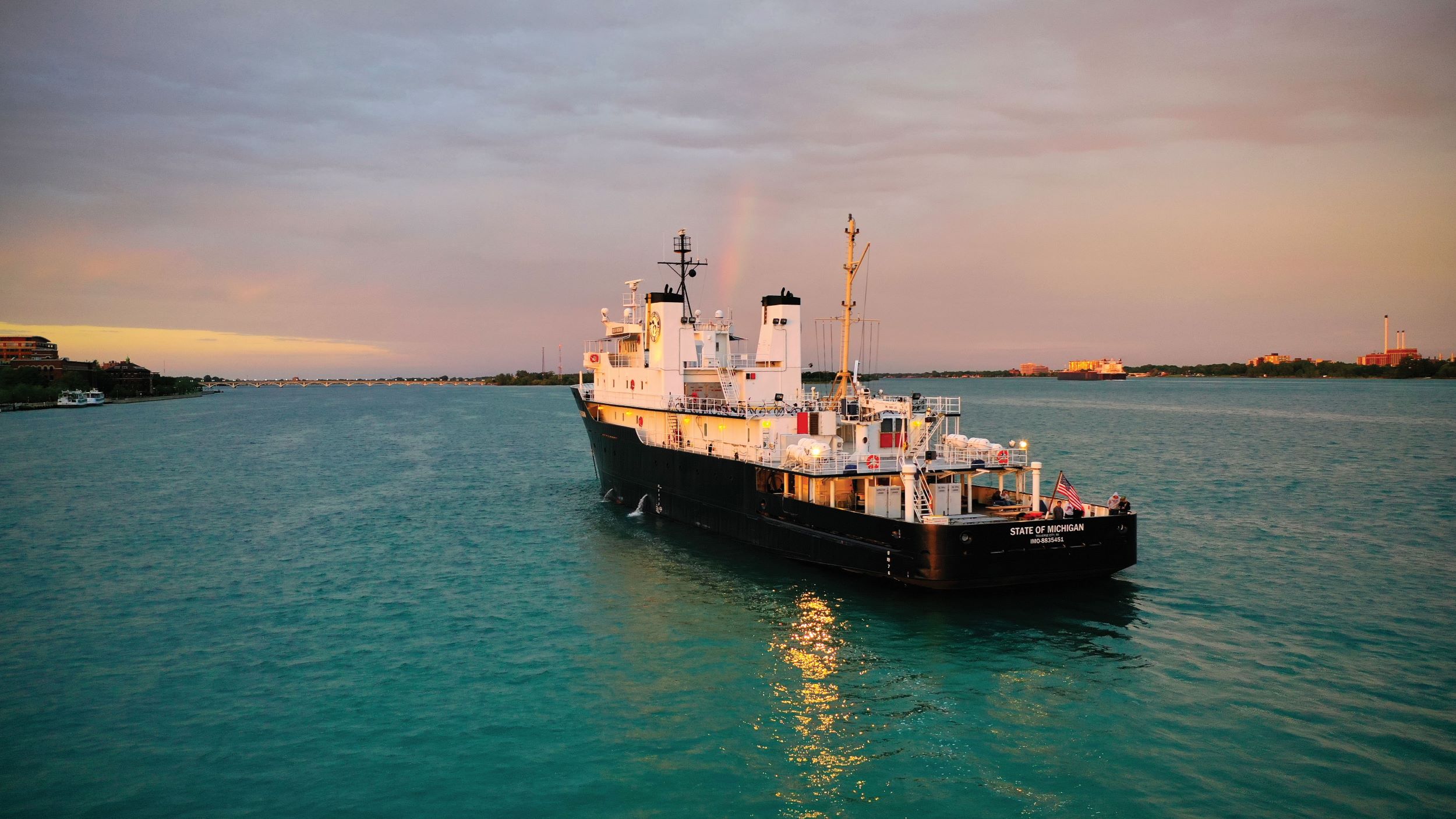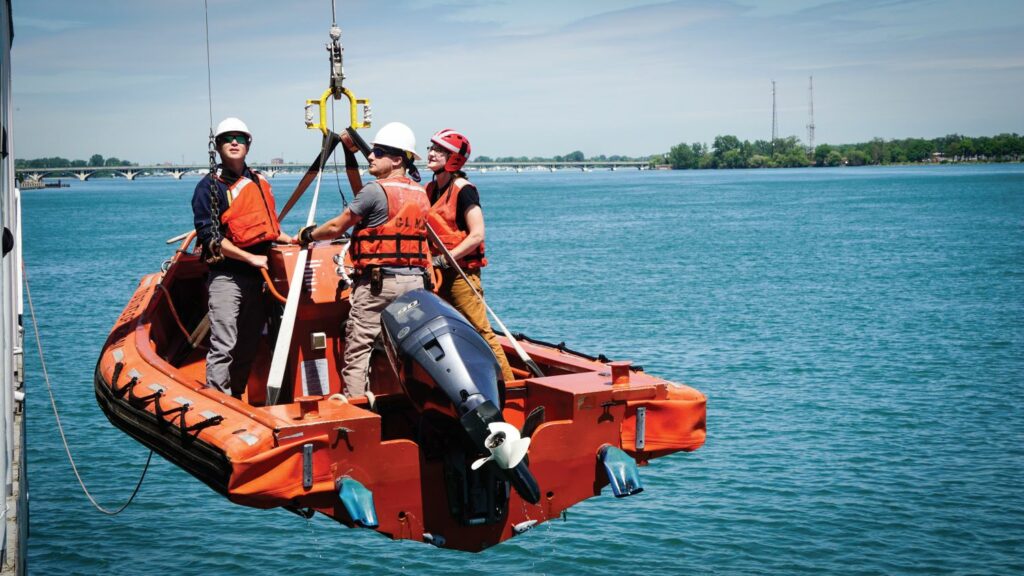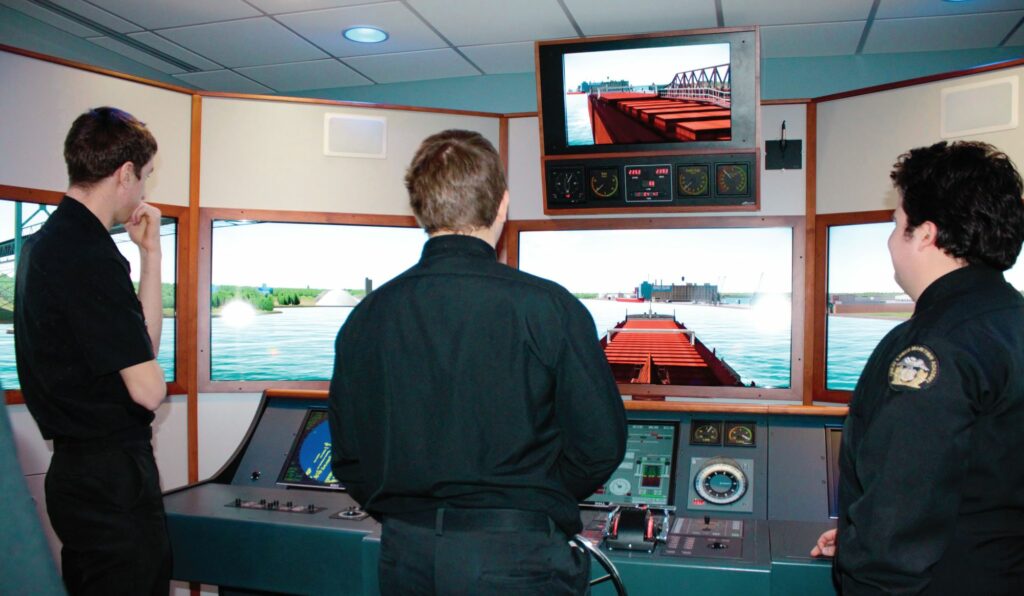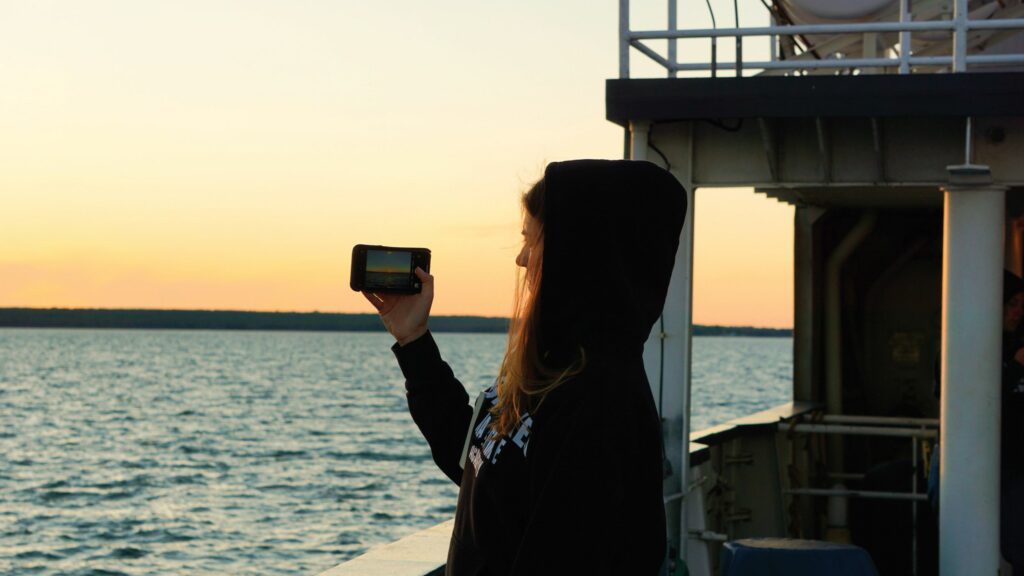The Great Lakes Maritime Academy (GLMA), a part of Northwestern Michigan College (NMC) that is located on its Grand Traverse campus in Traverse City, is one of only six maritime academies in the country. The other five, located in California, Maine, Massachusetts, New York, and Texas, are all part of educational programming that prepares individuals for careers as mariners, who are needed to operate large ships that carry steel, stone, agricultural products, sand, salt, oil, and other cargo. Other types of boats they can operate include military ships, research vessels, municipal ferries, tugboats, and dinner cruise ships.
The Great Lakes Maritime Academy began in 1969. It currently enrolls just 60 new cadets each year into its four-year bachelor’s degree program—36 in the deck program and 24 in the engineering program. The program requires the standard 120 credits to graduate with a bachelor’s degree—the GLMA coursework includes 80 maritime-related credits and 40 in general education.
Cadets in the deck program take classes in cargo, navigation, and ship business to learn skills like navigating the waters via the stars, calculating the stability of the ship, properly loading a ship, and handling ballast. In the engineer program, cadets take classes in electricity, steam, and diesel power so they can maintain the engines powering the vessels.
“The GLMA program is unique in that our program is about half the size of the other academies, ensuring students get personalized training,” said Admiral Jerry Achenbach, superintendent of GLMA. “Plus the bonus of a cohort system at a community college that has an ethos of working with first-generation college students, which means there is a lot of support for our nontraditional students.”
With the benefit of smaller class sizes and less expensive credit hours, the four full-time faculty and two staff members who teach are able to facilitate coursework that prepares students for life at sea. GLMA is also unique because, in conjunction with NMC’s culinary school, it is able to offer a dedicated track that prepares culinary students for galley work on commercial vessels or trade ships. They also earn their Coast Guard credentials alongside the full-time maritime students.
“NMC’s culinary program makes it possible for us to educate a truly unique demographic and prepare them for culinary careers at sea,” said Achenbach. “We’ve gotten feedback from HR departments who say that the food is better, the galley is cleaner, and food costs go down when they hire our graduates. That’s something we’re very proud of.”
Additionally, Achenbach notes they are proud that many veterans join their program after their service. In part, this is a big reason behind recent legislation that was introduced by Sen. Gary Peters, along with senators from the other states that host maritime academies. The legislation would extend the current age limit on the Student Incentive Payment (SIP) Program, which provides up to $32,000 in funding over four years to help offset the cost of tuition, uniforms, books, and living costs in exchange for enlistment in the U.S. Navy Reserve after students graduate.
“The SIP Program not only allows these great Americans to also serve as commissioned officers in the Navy’s Strategic Sealift Officer Program upon graduation, but provides much-needed financial support. Senator Peters’ initiative will allow nontraditional students from Michigan, as well as any state, to be eligible for this financial support,” Achenbach said. This legislation, known as the CADETS Act, was signed into law by President Biden earlier this summer.
Achenbach adds that sailing for a living does offer well-paying jobs and allows people a chance to see the world, but it’s not like other careers.
“It does have an element of adventure and is the furthest thing from a desk job,” said Achenbach. “But this is a lifestyle choice. It’s not for everyone.”









